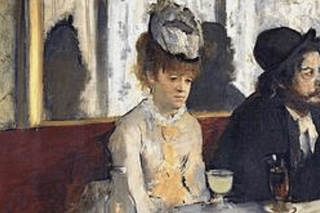
It’s Okay: To Be Mediocre
Proving your exceptionalism — especially on social media — can be exhausting. A seemingly ‘average’ life empowers personal choice.

In It’s Okay, we defend our most embarrassing, unpopular opinions.
Mediocrity, an author said some decades ago, is fatal. Its uninspiring ways, easy ground to craft excuses, make it opium for all sloths and unambitious folks. Pop culture, anecdotal evidence, and a cultural understanding have backed the mandate that being average is a blemish on personality.
Think of the ideas we’re programmed to go up against: how to be “most successful,” “most popular,” most… anything. The superlative to existence must be a constant state, and falling short raises questions about ambition and merit.
But there are people (well, people like me) who wear this “blemish” with pride. “I love to learn but I’m not the most brilliant person. I like to write but that doesn’t mean I’m the greatest writer. I’m just kind of plain,” wrote Canadian national and fellow mediocrity-embracer Krista O’Reilly Davi-Digui in a recent blog.
“What if I am mediocre and choose to be at peace with that?” she asked.
There is some merit to being average, to feeling okay with being at an arm’s distance from the “bests” and the “greats.” For one, it is a way to resist this perceived tyranny of excellence, as two researchers from the University of Oxford note. In 2018, they presented a paper on “kakonomics” based on the Greek word κακός (‘kakós’) which means “bad.” According to them, people consciously and unconsciously desire to achieve a mediocre or a low-quality result as a way of distancing themselves from popular ideas about success.
Think of the multiple critiques of perfectionism or meritocracy; the idea that excellence is parochial and outdated, and designed to uplift those in privileged positions.
Overall, it is safe to say mediocrity is underrated. Maybe it’s because we like to live in extremes. If anything, there’s no human conditioning more natural than being average, the semblance of balance comes across best in the world of average people. Greatness may be measured in extremes, but in the realm of mediocrity, there’s a chance to critique who measures greatness in the first place.
Plus, mediocrity exists in peace with good mental health. The pursuit of excellence inevitably hijacks a world of peace and leisure; it is hard to escape it, and we’re resolved to proving the many ways in which we’re special and unique at all times.
Proving your exceptionalism, especially on social media, is exhausting. “The messages are always: do more, be more, sacrifice sleep for productivity, bigger is better, rush, rush, rush,” Chitra Balachandran wrote in ThriveGlobal. “It just destroys me. I feel like that isn’t life and I don’t want it and I can’t even begin to keep up. So many of us just want to get off that hamster wheel and just breathe.”
Being satisfied is often dismissed as complacency, as a diametric reality to hustle culture that celebrates wanting and wanting more. Where does the buck stop, if at all? There’s so much resonance with this fatigue that there’s even a term for it: “toxic motivation.” The idea of “killing yourself” for the glory of success is deeply rooted in ableist notions of productivity. It’s no wonder that when we all feel average in our own little ways during the pandemic–unable to work a lot, unable to do anything, actually–the burnout is worse.
Related on The Swaddle:
There Are Three Types of Perfectionists. Which One Are You?
Instead, even a mundane world could be normal. Safety, comfort, a blase lifestyle associated with “mediocre” people have the potential to be desirable. The word in itself is wrapped in an aura of inferiority, but claiming it and finding peace in it could take a stab at the criticism.
Despite its public image, ambition is very personal. It’s defined by experiences and context and means different things to different people. For instance, “every healthy human body is capable of climbing mountains and swinging from trees, and even walking on our hands! But how many of us ever do? More importantly, how many of us even want to?” Balachandran added.
Fictional and real-life accounts have carved heroes that embody perfection to serve our aspirations. The glorious tales of billionaire-turned-superhero Batman– the child prodigy who runs a business empire while saving the world at night. (Have we all forgotten that his entire story rests on the foundation of trauma? His “excellence” cost him everything.) These seemingly perfect people are meant to inspire others to rise above their own mediocrity. But this reality is a little disingenuous.
Mark Manson likened the idea of “overachievers” not being a norm to that of a bell curve. The curve gets really thin at the far ends of any graph; meaning there are very few people who are either really good at something or really bad at it. The rest of us fall back into mediocrity. We’re all kakós in our own ways.
“We can apply a ‘curve’ in this way to tons of things in a population. Height. Weight. Emotional maturity. Wages,” Manson wrote. There’s an average trait in all of us, irrespective of what we like to believe. Even the prodigies, people who excel in a field, may fall short or be dismissed as mediocre in other areas. They’re average too. “We’re all, for the most part, pretty average people. The vast majority of us will never be truly exceptional at, well, anything. And that’s OK.”
This is not to say that those of us who embrace mediocrity have no desires or don’t see ourselves living a certain way, trying to better at things. We simply take the pressure off our shoulders with the time-honored tool of acceptance. It is in the pursuit of something, of meaning or purpose, that we do things. Rather than feeling like we need to be extraordinary — to be the Da Vinci of painting or Kobe Bryant of basketball — the effort has to be on finding what works for us, and feeling at peace with the result of mediocrity.
Whatever a mediocre person does, then, is for themselves. They may do it just for the joy of it and by that logic, are less tied to its outcome. Mediocrity is a celebration of personal choice and individuality. The acceptance of your limitations may liberate you.
Take a deep breath and say it with me: I am mediocre, and I love it.
Saumya Kalia is an Associate Editor at The Swaddle. Her journalism and writing explore issues of social justice, digital sub-cultures, media ecosystem, literature, and memory as they cut across socio-cultural periods. You can reach her at @Saumya_Kalia.
Related


Training Young People To Be More Empathetic Could Reduce Violent Crimes
